This is the third post of my personal experience with diet modification after reading books such as Wheat Belly, Grain Brain, Primal Body – Primal Mind, and It Starts with Food. The other posts are Food as Medicine and Weight, it’s all about food, which you can read here and here. As mentioned in a previous post, this post is not medical advice. It is simply my personal experience which you may (or may not) find interesting.
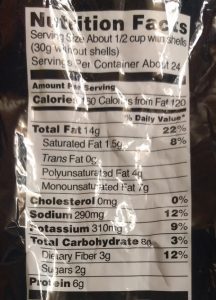 As part of my effort to eat healthier, cutting added sugars out of my diet was at the top of my priority list. Little did I know just how difficult this would be. I quickly learned that you had to be careful with anything processed, in a box, or sealed in a bag. When you buy something in that form factor, the question isn’t whether it has sugar. The question is how much.
As part of my effort to eat healthier, cutting added sugars out of my diet was at the top of my priority list. Little did I know just how difficult this would be. I quickly learned that you had to be careful with anything processed, in a box, or sealed in a bag. When you buy something in that form factor, the question isn’t whether it has sugar. The question is how much.
Here’s just one recent example that shocked me. To change up my routine and add some spice to my pistachio habit, I wanted to give salt & black pepper pistachios a try. When I saw them at Costco, I couldn’t resist and grabbed a bag. Midway through my first serving, something seemed…, well, off. In addition to the pepper seasoning, I was detecting a bit of a sweetness. I didn’t think much of it, but decided to check the ingredients. Bingo! Sugar. Now granted, it was pretty far down the ingredient list, and it wasn’t a lot. But we’re talking about pistachios. Why is there any sugar added?
As it so happens, this is just one example of many.
Sugar, it’s everywhere
If there’s sugar in a bag of pistachios, then there must be sugar everywhere. And there is. Here’s a sampling of a few foods that you would think wouldn’t have much sugar in them.
Added sugar is not by accident
The fact that sugar is added to nearly every processed food is not an accident. The food companies know what they’re doing.
Sugar is a highly addictive substance. Studies have shown that sugar has the same addictive qualities as drugs. It stimulates hormones that trigger our hunger response. Adding just the right amount of sugar to food triggers cravings without making the food taste too sweet. It’s why food companies employ teams of food chemists to study and determine just how much sugar should be added to processed foods. (My daughter wrote an excellent post about the dangers and addictive qualities of sugar which you can read here.)
I’m convinced that there is a link between processed foods, sugar, and our current obesity epidemic. Enhancing processed foods with sugar coincided with the advent of the low-fat diet. Removing fat from food resulted in a bland taste profile that was replaced with the sweetness of sugar. If you look at studies of obesity rates in the US, you’ll see there is a direct correlation between the rise in obesity rates and the adoption of low fat diets (see this source for a number of interesting graphs).
What I learned
There are a few things that I learned from reading food labels in my quest to cut down on my daily sugar intake.
- Read food labels. very carefully. Even foods that are marketed as healthy alternatives can contain sugar, and a surprising amount at that. Be especially leery of foods marked fat-free or low in fat. Fat adds natural flavor and sweet taste to food. When it is removed, the food companies make up for it by adding sugar so the food remains palatable.
- Sugar can come from surprising sources. See #1 above. Never assume that because it shouldn’t contain sugar, it won’t. You need to be careful about anything that is processed or comes in a box, bag, or any other sealed container.
- When in doubt, stick to natural foods. A good rule of thumb is to do the majority of your shopping around the edges of the supermarket. Most, if not all, processed foods are shelved in the center of the store with produce, meats and dairy around the edges.
- Food companies are not your friend when it comes to watching you diet and your weight. Companies making processed foods are large corporations who answer to shareholders. They are in the business of making a profit. It might be disappointing, but it should not be shocking that corporations make trade-offs in the production of food that benefit their bottom line more than your health.
What we consume and allow to enter our bodies is one of the most important decisions we make multiple times daily. It determines our health, our mental make-up, our quality of life. It’s also a very personal decision as all of our bodies are different. One of the most important things you can do is to read and educate yourself on food and its effects on the body. Then it is important to experiment, tweak and fine-tune your diet to find the combination that works best for you.
I’ve been doing for the last two years. Although I wish I would have started sooner, it’s never too late to start. You’ll be very happy that you did, and you certainly won’t regret it.

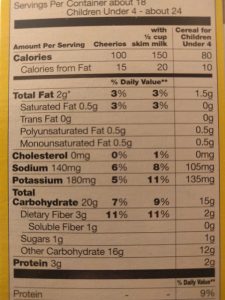
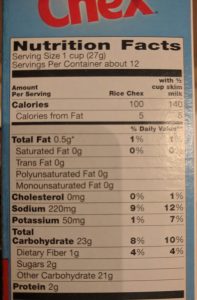
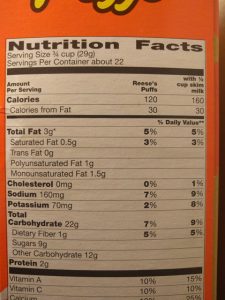
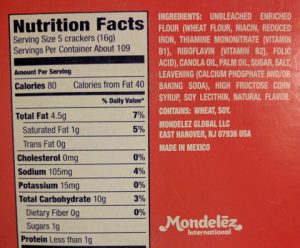
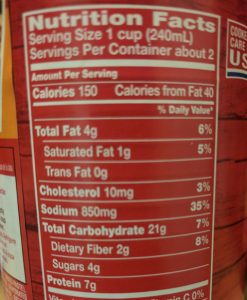
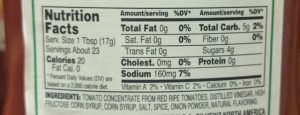
Pingback: On Diet: 8 Lessons I've Learned - Gregg Borodaty